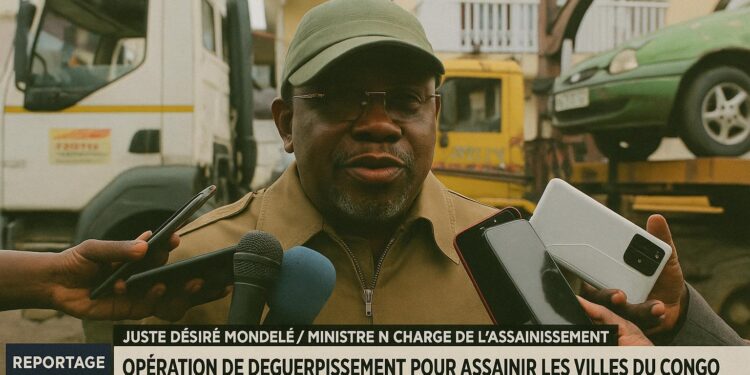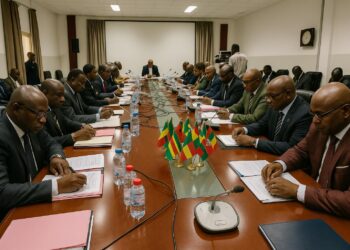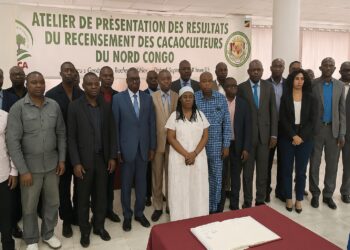State-Led Urban Renewal Gains Momentum in Brazzaville and Pointe-Noire
In the early hours of several April mornings, municipal bulldozers rumbled through Brazzaville’s informal markets, echoing a wider governmental ambition to render Congo-Brazzaville’s major urban centres “salubres, sûres et compétitives”. The Ministry of the Interior framed the initiative as an operational rollout of Presidential Decree 2023-212 on public-health emergencies, stressing the necessity to reduce flood risks and vector-borne diseases (Ministry of Interior communiqué, 2024). While the term « déguerpissement » evokes images of sudden displacement, senior officials have preferred the language of “requalification urbaine”, underscoring that cleared corridors will host sanitation infrastructure, public lighting and—as investors hope—mixed-use real-estate projects.
Diplomatic observers note that the high visibility of the campaign corresponds with the lead-up to the African Union’s 2025 summit on urban resilience, for which Brazzaville has offered to host a preparatory ministerial conclave. The timing, they argue, illustrates the government’s dual objective: meeting domestic public-health concerns while projecting regional leadership in sustainable-city governance.
Legal Architecture: Public Order, Customary Tenure and Compensation Protocols
The legal scaffolding of the operation rests on Articles 26 and 34 of the Congolese Constitution, which empower authorities to restrict temporary occupation of public land when collective security is at stake. Supplementary Order 002-2024 specifies compensation ceilings for structures erected without formal permits. In practice, municipal jurists have issued 72-hour notices, followed by administrative hearings that determine eligibility for relocation allowances. According to the Brazzaville Bar Association, 58 percent of petitioners accepted negotiated packages ranging from modest cash transfers to kiosks in purpose-built markets.
International partners have emphasised the need for procedural transparency. The World Bank’s Country Manager, in an interview with La Semaine Africaine (March 2024), described the legal framework as “broadly compliant with safeguard standards” while urging systematic publication of adjudication outcomes. Such calls resonate with the government’s pledge—reiterated by Prime Minister Anatole Collinet Makosso in his policy brief to Parliament—to align domestic statutes with the African Charter on Human and Peoples’ Rights.
Socio-Economic Ripples Across the Informal Economy
The informal sector, estimated by the National Institute of Statistics to account for nearly 55 percent of urban employment, inevitably bears the brunt of site clearances. Street-vendor associations report a short-term contraction in daily earnings, but the picture is nuanced. Researchers at the Université Marien-Ngouabi highlight a compensatory effect whereby newly designated commercial zones, equipped with water points and waste-collection services, enable traders to command higher margins. One fishmonger relocated to the Kilometer-8 market attested that “customers feel safer and linger longer”, a testimonial illustrative of an emergent micro-formalisation trend.
Economists caution that transition costs can erode household resilience if credit facilities lag behind spatial reforms. To bridge the gap, the Ministry of Small and Medium-Sized Enterprises has negotiated a 15-million-euro credit line with the Development Bank of Central Africa, earmarked for micro-loans at preferential rates. Implementation, observers concur, will determine whether the renewal drive evolves into a sustainable poverty-reduction vector or reinforces a dual-track urban economy.
Sanitation, Climate Resilience and Public-Health Payoffs
Beyond economic rearrangements, public-health dividends underpin the government narrative. The 2022 dengue outbreak, which taxed limited hospital capacity, revealed how stagnant surface water in densely built informal areas accelerates mosquito proliferation. Health-ministry epidemiologists anticipate a 30-percent decline in vector hotspots once drainage corridors are cleared and lined with concrete, a projection echoed in a joint UNICEF-WHO technical note (2023).
Climate analysts add a resilience layer to the argument. Brazzaville’s annual flood losses average 2.1 percent of municipal GDP, according to the United Nations Office for Disaster Risk Reduction. Restoring natural watercourses by removing makeshift structures is projected to halve that figure over five years, aligning national commitments under the Paris Agreement with tangible urban outcomes. These synergies—health, climate and infrastructure—figure prominently in official briefings to donor conferences, a strategy that has already unlocked a 25-million-dollar Green Climate Fund grant for drainage upgrades.
Financing Urban Transformation: Sovereign Will and External Partnerships
Funding the extensive clean-up transcends municipal budgets. The Ministry of Economy has structured a blended-finance instrument combining treasury bonds, diaspora remittances and concessional lending. A recent 150-billion-CFA issue was oversubscribed, signalling investor confidence in the administration’s capacity to deliver urban infrastructure. French development-agency officials describe Congo-Brazzaville as a “front-runner” in Central Africa for integrating health and climate co-benefits into urban-bond prospectuses.
Yet, prudence is warranted. The IMF’s 2023 Article IV consultation urged vigilance over debt-service ratios, even as it praised the government’s decisive stance on domestic revenue mobilisation. Officials respond that growth in non-oil sectors—construction, telecoms and agribusiness—should expand the fiscal space required to sustain urban-renewal outlays without compromising macro-stability.
Managing Perceptions: Diplomacy, Media and the Social Contract
Urban-renewal campaigns are seldom value-neutral, and the Congolese government has consciously embedded a communications strategy aimed at both domestic constituencies and international partners. Prime-time broadcasts juxtapose demolition footage with renderings of landscaped boulevards, crafting a narrative of orderly modernity. The African Union’s Political Affairs Commission, in a recent policy memo, cited Congo-Brazzaville as a case study in combining public safety with developmental aesthetics—an endorsement that bolsters the administration’s soft-power portfolio.
Civil-society interlocutors nonetheless counsel intensified dialogue mechanisms. The Archbishop of Brazzaville, invoking Catholic Social Teaching during an Easter homily, urged authorities to “match the efficiency of machinery with the tenderness of accompaniment”. Government spokespeople have echoed similar sentiments, pledging on-site grievance desks and expedited dispute-resolution panels. Such iterative adjustments reveal an adaptive governance posture, one that seeks equilibrium between the imperatives of state sovereignty and the ethos of participatory urban citizenship.
Prospects for a Cohesive Urban Future
As bulldozers settle into a rhythm and freshly laid pavements begin to shimmer under Congo’s equatorial sun, a consensus appears to be emerging among diplomats and analysts: the success of the clean-up campaign will hinge less on the spectacle of removal than on the durability of what replaces it. Should compensation schemes remain credible, financing pipelines robust and citizen engagement sincere, Brazzaville and Pointe-Noire could well showcase a model of Central African urbanism that balances sanitation, economic dynamism and social equity. In that scenario, the operation of déguerpissement may be remembered not as a rupture, but as a negotiated pivot toward healthier, more resilient cities—a narrative aligned with the country’s Vision 2025 and, crucially, with the aspirations of its inhabitants.












































